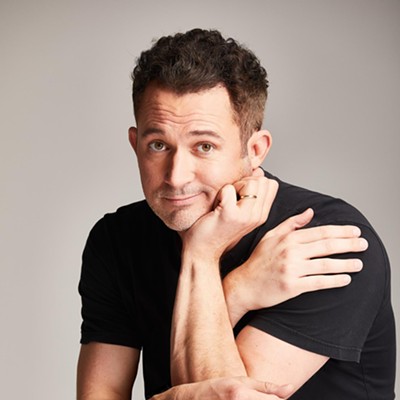"In East Africa, children had a deep sense of who they were and a deep sense of responsibility. It was common to see a 3- or 4-year-old taking caring of an infant. By 10 or 11, they have a deep sense of ... what they are doing in this lifetime."
Klabunde attributes this to the way they are raised. "They are given a lot of responsibility at a young age. Character development is sped up."
But Klabunde also believes their education methods also make a difference.
"They use two modalities of education. The first way is through the arts--music, song and dance. The second way is the European sense of education in the classroom," he explains.
The first modality intrigued Klabunde enough for him to come up with a new idea. "(I thought) music, song and dance could be used to teach kids about themselves and the world on a much deeper level than what we are doing here. ... Learning through movement and action and having a whole body experience is more holistic. It penetrates the soul and heart, and not just the intellect."
Upon their return to the United States, Klabunde and his wife formed The Dambe Project, a nonprofit that specializes in teaching African performing arts and mentoring children. Klabunde says the word dambe comes from the Bamana people in Mali, West Africa.
"It is an old word meaning to have integrity in the light of the creator. It is a word of great respect. I thought it was appropriate, (because we are) trying to instill integrity in the children."
During the 2005-2006 school year, The Dambe Project offered classes in six different schools in Tucson, from elementary to high school. Klabunde says there were year-long programs at Miller Elementary School and Rincon/University High School, focusing on music, song and dance from East and West Africa. At the end of each program, students showed off their new talents at a performance.
"The curriculum is set up to address life skills," says Klabunde. "When you put a drum in front of a kid, they develop patience, discipline and communication skills. ... The songs are polyrhythmic. Each person plays a different part that adds to the whole. They learn how to speak and when to listen. Music is a great vehicle. It doesn't bring up any walls. In a verbal class, we would have a harder time. ... (But in this program, the students) experience a positive relationship with themselves, their peers and their teacher."
Klabunde has formed friendships with his own adult students while teaching djembe classes. The djembe is a goblet-shaped drum fashioned with goat skin on the top and played with the hands, as defined at www.dambe.org.
Klabunde approached several of his students in 2003 to form a group. The Dambe Drum Ensemble was born.
The seven-member ensemble performs traditional music from Mali, Guinea and the Ivory Coast. Besides Klabunde, who has played and studied drumming for the past 18 years, the ensemble's newest member also has a long musical history. Adama Dembele, a native of the Ivory Coast, joined The Dambe Project and the ensemble in January. He began playing the djembe at the age of 10.
"He is a professional djembe player," says Klabunde. "He was looking for a djembe group and gave me a call. ... He is a huge asset to this group. No one in Tucson plays at his level."
Dembele teaches djembe classes and also the dunun. The dunun is an African drum that has cow skin on both sides and is played with a stick and metal striker.
Dembele has performed in several ensembles, including Yelemba D'Abidjan. Before they met each other, Klabunde was listening to Yelemba CDs. Klabunde marvels at the fact they now perform together in the Dambe Drum Ensemble.
Klabunde says the ensemble performs at the UA's African Student Association events, on Fourth Avenue, at private parties and publicly twice a month at "Let's Dance" events.
"At the 'Let's Dance' events, we provide a space for people to move and dance. Oftentimes, people come and watch. That's OK as well.
"The Dambe Drum Ensemble functions as an extension of The Dambe Project in a sense that we do a lot of community events and are seeking to develop a community of people interested in this music. It's a way to reach people in the community who are interested in drumming and percussion and haven't seen much of it.
And if that function isn't enough, Klabunde says the events are "a blast. I haven't heard one negative thing yet. It gives people the opportunity to shake their booty."
The Dambe Drum Ensemble performs from 8 to 11 p.m., Saturday, June 3, at Anjali, 330 E. Seventh St. Tickets are $8 general and $5 for students. For more information, call 245-4547, e-mail info@dambe.org or visit www.dambe.org.







